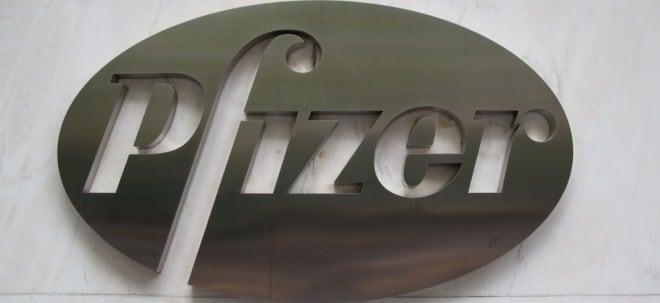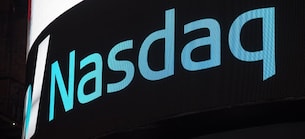Oracle vs. Microsoft: Which Cloud & AI Giant is the Better Buy Now?
Werte in diesem Artikel
Oracle ORCL and Microsoft MSFT stand as titans in the cloud computing and AI landscape, each leveraging its legacy enterprise software foundations to capture the explosive growth in AI-driven cloud infrastructure. With the global cloud infrastructure market projected to reach $2 trillion by 2030 and generative AI alone expected to drive $200-$300 billion in annual cloud spending, these technology giants are positioning themselves as essential partners in the digital transformation journey.Oracle's stunning 359% surge in remaining performance obligations to $455 billion and its groundbreaking $300 billion OpenAI deal have sent shockwaves through the market, while Microsoft's $80 billion AI infrastructure commitment for fiscal 2025 and expanding Copilot ecosystem demonstrate its determination to maintain cloud leadership. Let's delve deep and closely compare the fundamentals of the two stocks to determine which one is a better investment now.The Case for ORCL StockOracle has emerged as a dark horse in the AI cloud race, transforming from a traditional database company into a major hyperscaler. The company's Oracle Cloud Infrastructure posted a remarkable 55% revenue growth in its latest quarter, significantly outpacing the broader market and approaching an annual run rate of $18 billion for fiscal 2026. This explosive growth is backed by $455 billion in remaining performance obligations, including a historic $300 billion contract with OpenAI beginning in 2027, representing one of the largest cloud agreements in history. Oracle's aggressive expansion includes bringing 101 cloud regions online, with plans to eventually exceed all competitors combined in regional coverage.The company's unique multi-cloud strategy sets it apart, as Oracle is embedding native versions of its infrastructure directly within AWS, Microsoft Azure, and Google Cloud through partnerships like Oracle Database@AWS and Oracle Database@Azure. This approach allows customers to leverage Oracle's superior database performance while maintaining their existing cloud relationships. Oracle's Gen 2 cloud architecture claims 50% better price performance and 3.5 times time savings for high-performance computing workloads, making it particularly attractive for AI training and inference tasks. The company's announcement of the Oracle AI Database service in October, enabling customers to run OpenAI and other AI models directly on Oracle databases, further strengthens its AI positioning.However, the company's total revenue growth of just 7% year over year to $14.9 billion in first-quarter fiscal 2026 pales compared to its cloud infrastructure growth, suggesting heavy dependence on this single segment. Converting the massive $455 billion backlog into actual revenues will require flawless execution and substantial capital investment in data centers and infrastructure.Oracle Corporation Price and Consensus Oracle Corporation price-consensus-chart | Oracle Corporation QuoteThe Case for MSFT StockMicrosoft remains the preferred choice for enterprise AI and cloud solutions, with Microsoft Cloud surpassing $40 billion in quarterly revenues and growing at a robust 21% year over year. The company's AI business has reached an extraordinary $13 billion annual run rate, growing 175% year over year, showcasing the successful monetization of its AI investments across multiple product lines.Microsoft's comprehensive AI strategy spans from Azure's infrastructure to productivity tools like Copilot, which is being integrated across Microsoft 365, Windows 11, and enterprise applications, creating multiple revenue streams and reducing dependence on any single product. The recent $30 billion UK investment announcement, representing Microsoft's largest country commitment ever, includes building the nation's largest supercomputer with 23,000 NVIDIA GPUs, demonstrating the company's commitment to global AI infrastructure expansion.Microsoft's Build 2025 conference unveiled agentic AI capabilities, including GitHub Copilot's evolution into an autonomous coding agent and the Azure AI Foundry Agent Service for enterprise-grade multi-agent orchestration. The company's support for open standards like Model Context Protocol across its platforms positions it as a leader in interoperable AI solutions. With strategic partnerships spanning from OpenAI to Samsung for Copilot integration, and even the NFL deploying 2,500 Copilot+ PCs, Microsoft's ecosystem approach creates powerful network effects. The company's financial strength is evident in its operating income growth of 17% and the ability to return $9.4 billion to shareholders through dividends and buybacks in the fiscal fourth-quarter 2025 alone.Microsoft Corporation Price and Consensus Microsoft Corporation price-consensus-chart | Microsoft Corporation QuoteValuation and Price Performance ComparisonBoth stocks command premium valuations reflecting their AI leadership positions, though Microsoft's valuation appears more justified given its scale and profitability. Microsoft trades at a forward P/E of 31.94x and a price-to-sales ratio of 11.4x, while Oracle's steeper multiples include a forward P/E of 41.35x and price-to-sales of 11.89x.ORCL vs. MSFT: P/E F12M RatioImage Source: Zacks Investment ResearchMicrosoft shares have returned 20.6% year-to-date versus Oracle's 78% surge.ORCL Outperforms MSFT in YTDImage Source: Zacks Investment ResearchConclusionWhile Oracle's explosive cloud growth and massive $455 billion backlog present a compelling growth narrative, Microsoft emerges as the superior investment choice for most portfolios. Microsoft's multiple AI monetization avenues — from Azure to Copilot to GitHub — provide resilience that Oracle's concentrated cloud infrastructure cannot match. Microsoft's financial strength, global infrastructure investments, and leadership in agentic AI position it to capture disproportionate value from the AI revolution while maintaining the stability large investors require. For investors seeking AI and cloud exposure, Microsoft offers the optimal balance of growth, innovation, and reliability, warranting a buy recommendation, while Oracle's rich valuation suggests waiting for a better entry point despite its impressive transformation. Microsoft carries a Zacks Rank #2 (Buy), while Oracle has a Zacks Rank #3 (Hold) at present. You can see the complete list of today’s Zacks #1 Rank (Strong Buy) stocks here.Higher. Faster. Sooner. Buy These Stocks NowA small number of stocks are primed for a breakout, and you have a chance to get in before they take off.At any given time, there are only 220 Zacks Rank #1 Strong Buys. On average, this list more than doubles the S&P 500. We’ve combed through the latest Strong Buys and selected 7 compelling companies likely to jump sooner and climb higher than any other stock you could buy this month.You'll learn everything you need to know about these exciting trades in our brand-new Special Report, 7 Best Stocks for the Next 30 Days.Download the report free now >>Want the latest recommendations from Zacks Investment Research? Today, you can download 7 Best Stocks for the Next 30 Days. Click to get this free report Microsoft Corporation (MSFT): Free Stock Analysis Report Oracle Corporation (ORCL): Free Stock Analysis ReportThis article originally published on Zacks Investment Research (zacks.com).Zacks Investment ResearchWeiter zum vollständigen Artikel bei Zacks
Übrigens: Microsoft und andere US-Aktien sind bei finanzen.net ZERO sogar bis 23 Uhr handelbar (ohne Ordergebühren, zzgl. Spreads). Jetzt kostenlos Depot eröffnen und Neukunden-Bonus sichern!
Ausgewählte Hebelprodukte auf Ai
Mit Knock-outs können spekulative Anleger überproportional an Kursbewegungen partizipieren. Wählen Sie einfach den gewünschten Hebel und wir zeigen Ihnen passende Open-End Produkte auf Ai
Der Hebel muss zwischen 2 und 20 liegen
| Name | Hebel | KO | Emittent |
|---|
| Name | Hebel | KO | Emittent |
|---|
Quelle: Zacks
Nachrichten zu Microsoft Corp.
Analysen zu Microsoft Corp.
| Datum | Rating | Analyst | |
|---|---|---|---|
| 04.11.2025 | Microsoft Outperform | RBC Capital Markets | |
| 31.10.2025 | Microsoft Buy | Goldman Sachs Group Inc. | |
| 30.10.2025 | Microsoft Kaufen | DZ BANK | |
| 30.10.2025 | Microsoft Buy | UBS AG | |
| 30.10.2025 | Microsoft Buy | Jefferies & Company Inc. |
| Datum | Rating | Analyst | |
|---|---|---|---|
| 04.11.2025 | Microsoft Outperform | RBC Capital Markets | |
| 31.10.2025 | Microsoft Buy | Goldman Sachs Group Inc. | |
| 30.10.2025 | Microsoft Kaufen | DZ BANK | |
| 30.10.2025 | Microsoft Buy | UBS AG | |
| 30.10.2025 | Microsoft Buy | Jefferies & Company Inc. |
| Datum | Rating | Analyst | |
|---|---|---|---|
| 31.05.2023 | Microsoft Neutral | UBS AG | |
| 27.04.2023 | Microsoft Neutral | UBS AG | |
| 20.04.2023 | Microsoft Neutral | UBS AG | |
| 17.03.2023 | Microsoft Neutral | UBS AG | |
| 14.03.2023 | Microsoft Neutral | UBS AG |
| Datum | Rating | Analyst | |
|---|---|---|---|
| 03.07.2020 | Microsoft verkaufen | Credit Suisse Group | |
| 19.11.2018 | Microsoft Underperform | Jefferies & Company Inc. | |
| 26.09.2018 | Microsoft Underperform | Jefferies & Company Inc. | |
| 14.06.2018 | Microsoft Underperform | Jefferies & Company Inc. | |
| 13.06.2018 | Microsoft Underperform | Jefferies & Company Inc. |
Um die Übersicht zu verbessern, haben Sie die Möglichkeit, die Analysen für Microsoft Corp. nach folgenden Kriterien zu filtern.
Alle: Alle Empfehlungen


